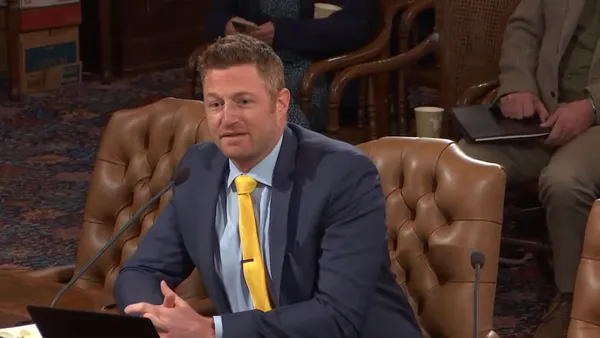Dive Brief:
- Charlotte, North Carolina's Solid Waste Services Department (SWSD) recently kicked off a new 16-week curbside organics pilot in eight historically black neighborhoods that officials now collectively refer to as the North End Smart District, as reported by QCity Metro. Material will be picked up on regular collection days and taken outside the city to Earth Farms Organic for composting.
- The pilot is funded by a $10,000 grant from the North Carolina Department of Environment Quality. SWSD has agreed to pay Earth Farms a $25 per ton tip fee for the material.
- An estimated 100 households have signed up to participate through December 21 so far. SWSD hopes to see a 30-50% reduction in landfill waste and will be weighing material throughout the pilot to assess. If successful, this could potentially expand citywide.
Dive Insight:
Charlotte has set a goal of achieving "zero waste" by 2050 and outlined organics as a priority back in 2016 with the launch of its "Healthy Communities" project. Initially funded with $75,000, that program continues to focus on the connection between waste and personal health in an estimated 16,000 majority low-income and minority households. The project includes an ongoing partnership with Crown Town Compost to service a broader range of neighborhoods and offer weekly drop-off service.
Healthy Communities also supports ongoing Food To Good To Waste Challenges — modeled after and supported by the EPA — that aim to educate residents about how to shop, cook and store more nutritious food while also cutting down on their waste. Working with organizations such as the Natural Resources Defense Council, other cities such as Nashville, Tennessee and Denver have launched similar initiatives in recent years. Making these types of connections is seen as increasingly important at both the national and local level to help engage the public around food waste reduction.
While some within the broader industry still question if the math can work for residential curbside organics programs, especially in areas that have comparatively lower landfill tip fees than the national average, interest continues to pop up throughout the country. Though larger cities such as New York have learned the expensive lesson that driving participation can be a challenge, so any successful program will need to ensure residents are receptive and excited about the concept.
The fact that recycling issues have been in the local news lately due to the market crunch may present an opportunity for Charlotte's SWSD to discuss broader waste management goals with the general public. Encouraging residents to divert organics for composting could make them think more about purchasing choices and help produce a cleaner recycling stream, while also preserving area landfill capacity in the event that any mixed paper or plastics end up getting disposed in the near-term.















